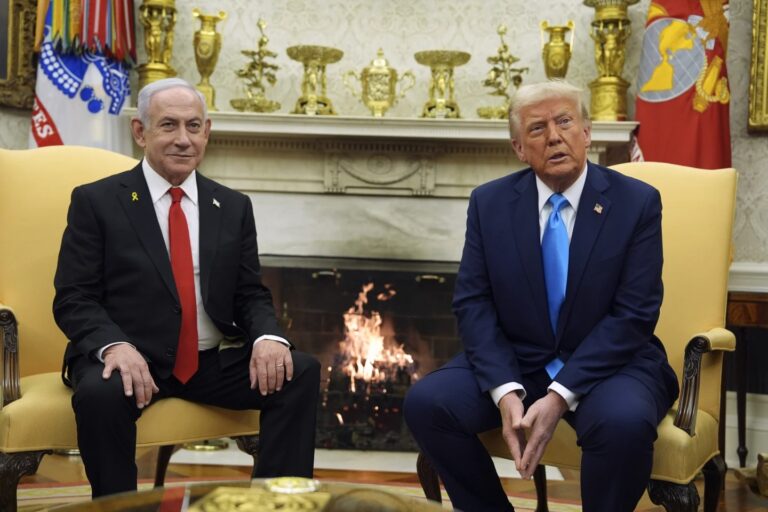 Typical protective parents that we are, my wife and I were apprehensive about putting our 14-year-old son by himself on a train from New York to Baltimore, where he attends the mechina of Yeshivas Ner Yisroel. His planned ride back to yeshiva after Sukkos with one of the bochurim in the yeshiva gedola had evaporated, though, and so we had no choice.
Typical protective parents that we are, my wife and I were apprehensive about putting our 14-year-old son by himself on a train from New York to Baltimore, where he attends the mechina of Yeshivas Ner Yisroel. His planned ride back to yeshiva after Sukkos with one of the bochurim in the yeshiva gedola had evaporated, though, and so we had no choice.
We asked my father, a beloved rov in suburban Baltimore, if he might be able to pick Dovie up at the train station downtown and take him to the yeshiva, he assured us, as we knew he would, that it would be no problem. He and my stepmother would do anything for any of their grandchildren.
My wife took Dovie to the train station on our end, and I called her on her cellphone from my office to make sure they had arrived safely and on time. As she described seeing our son off, I couldn’t help but recall the story of another Jewish 14-year-old’s first solo rail ride.
It was just about the same time of year, around Simchas Torah, but the year was 1939, and the Nazis had just begun their invasion of Poland. The boy’s family, along with all the townsfolk, had fled their tiny village in central Poland by foot. Doing their best to stay ahead of the advancing German army, they reached a city called Zembrov, where there was a shul and Jewish infrastructure. The family found a temporary place to stay, but the boy had made up his mind, despite the family’s dislocation, that he was going to the yeshiva in Bialystok, where, before the outbreak of the war, it had been arranged for him to study.
The parents balked – who could know, they argued entirely reasonably, what lay ahead? – but the boy insisted. Years later, his persistence at the time would make him wonder. Why indeed had he insisted on leaving his family at a time of war? But in the end his parents relented, surely unaware that their son’s decision would save his life. With the clothes on his back, a spare shirt, his tefillin, a siddur, and a few apples from his mother, the boy boarded the train to Bialystok. He would never see his mother or father again.
On the train, two elderly Jews approached him and asked: “Yingeleh, where are you going?” He responded, “To the Bialystok yeshiva.”
“The Bialystok yeshiva?” they exclaimed. “The Bialystok yeshiva has moved to Vilna!”
The boy hadn’t realized – how could he have? – that all the Polish yeshivos had relocated at war’s start to the famed Lithuanian city. Having no idea where to go or what to do, he began to panic but then calmed himself with the thought: “Well, I was going to go to Bialystok to study, and so now I’m just going to Vilna instead.”
When the train arrived in Bialystok, the boy, although he had no ticket, asked someone in the station which train was going to Vilna. When he finally located the track, he saw a train filled to capacity with people – some were hanging from its sides. The boy began to cry but was impelled by something nebulous but powerful to somehow get on the train. It had begun to leave the station but was still moving slowly and so he ran after it along the tracks and grabbed the handrail of the steps to one of its doors. Grasping his handhold tightly, he managed to get one of his feet on the step. As the train picked up speed, people moved in, and, with some settling on the platforms between cars, the boy managed to find a place to sit. He fell asleep, and morning found him in Vilna.
The rest of the boy’s story is equally compelling. He studied, as he had wished, in the yeshiva, but it wasn’t long before he and his fellow students were uprooted again. Eventually they and their teachers were sent by the Russians to a work camp in Siberia, a saga unto itself. Although there were many harrowing moments over those months and years, he survived the war, immigrated to the United States and raised a family.
We American-born Jews would do well to more often and more deeply dwell on what previous Jewish generations had to endure. What we call problems wouldn’t even register on their radar screens, and realities they faced daily we see only in our nightmares. Reminding ourselves of those facts not only charges us to more deeply respect and appreciate those who came before us, it provides us perspective in our own lives and impels us to be deeply thankful for all the great brochos we have, and all the great nisyonos we don’t.
Dovie’s trip was uneventful. His train arrived a bit later than expected but my father was there to shuttle him to yeshiva. When I called my father later that evening to thank him again, he assured me that he was happy to have been of help.
He also mentioned that he had asked Dovie if the train ride had been his first. When Dovie answered in the affirmative, my father told his grandson: “There isn’t time now, but one day, remind me to tell you about my own first train trip. It was when I was just about your age.”
© AM ECHAD RESOURCES
[Rabbi Shafran is director of public affairs for Agudath Israel of America]











6 Responses
‘asara nisyonos nisnasa avrohom v’omdu al kulom’.
‘trains’ was also part of these nisyonos of the generations after avrohom avinu.
Although this story is touching, to even begin to compare a contemporary boy’s first train ride – on an air-conditioned, plush, Amtrak train – with that of a European boy during the Holocaust, is, in my opinion, sacrilege.
As difficult as it is for a parent today to send a child away to Yeshiva on their own for the first time, I think we need to be careful on comparing such a situation to anything that took place during those dark years.
Rather than raising the stature of the NY-to-Baltimore trip in any way, this comparison only ends up greatly diminishing the horror and trepidation of the Holocaust-era train ride.
I would encourage Dovie to ask his grandfather many questions about his trip to Vilna and thereafter in Siberia. Unfortunately, there are many of us who never asked any questions of our parents who underwent a similar experience because it was too painful for them to relive it.
Very moving. Thank you for sharing.
Eliezer, relax. All the good Rabbi said was that his son’s train ride reminded him of another train ride.
I think we can all agree that Rabbi Shafran did not intend to compare the two rides.
In fact, if you read the 3rd to last paragraph, the writer highlights the differences between today’s minor challenges, and the terrifying ordeals, trials and tribulations our people experienced back then.
Very moving. Indeed, we must acknowledge the nisyonos faced by our forbears not that long ago, and respect and admire them accordingly. I sometimes wonder how much s’char members of the Shearis HaPleitah receive for each mitzva they perform.
I also feel that those of us fortunate to grow up in this generation must appreciate our bountiful opportunities to live a Torahdik life, and utilise them to the fullest.